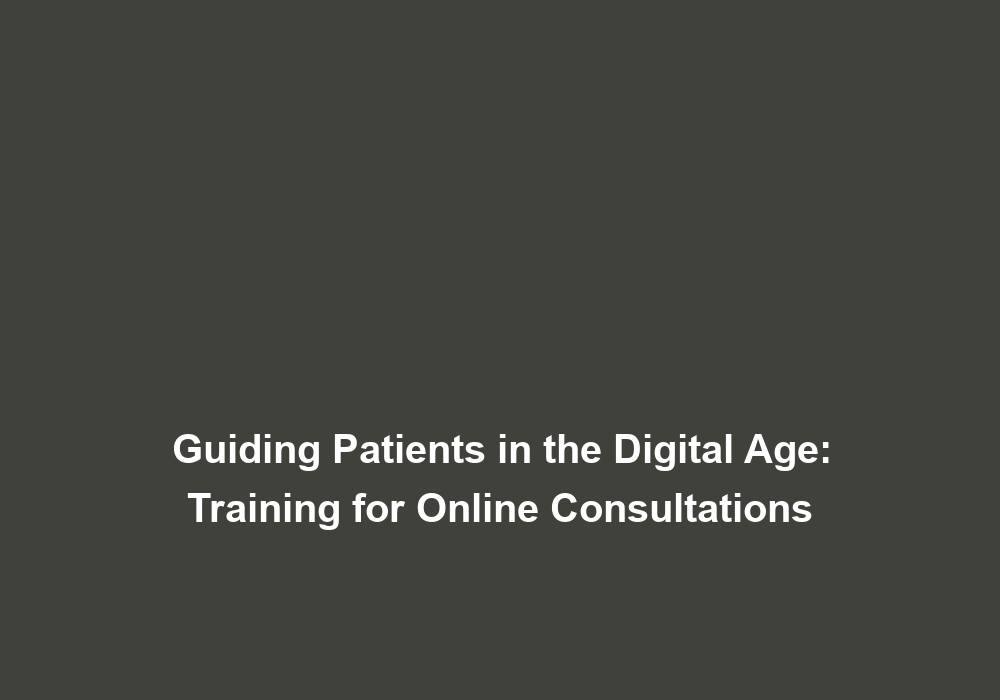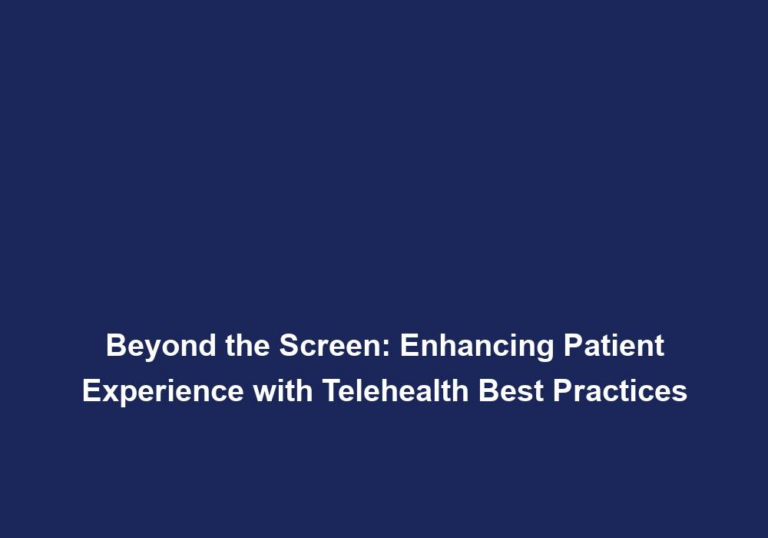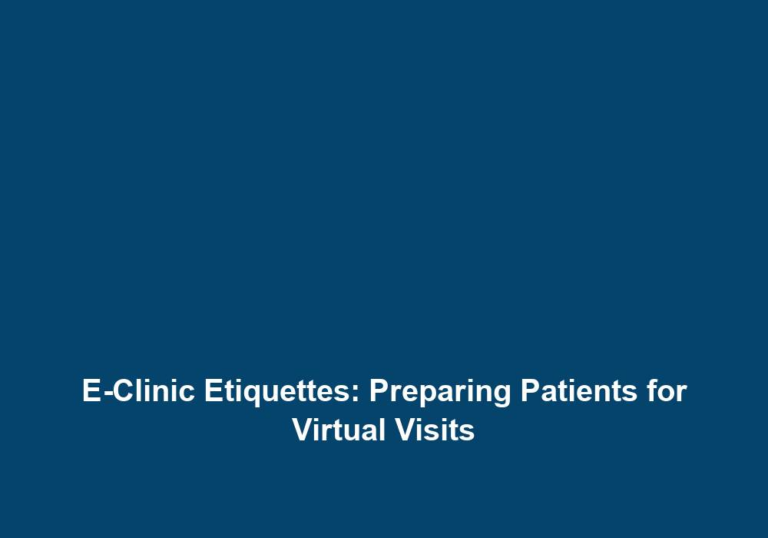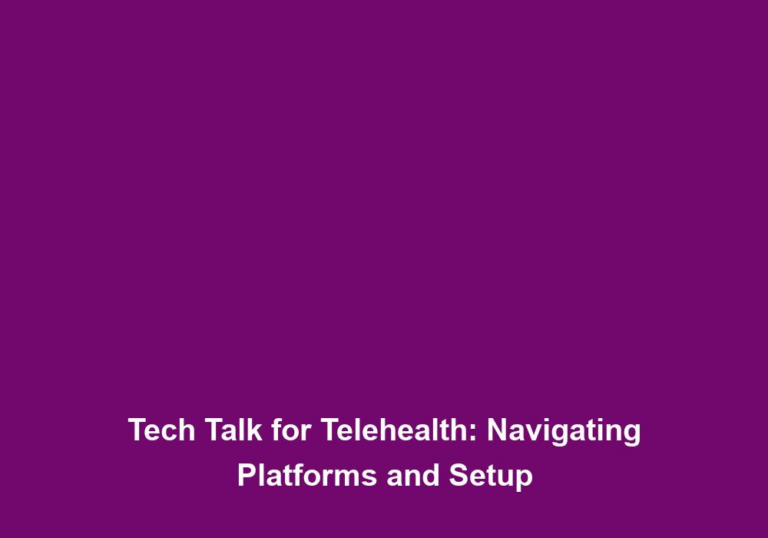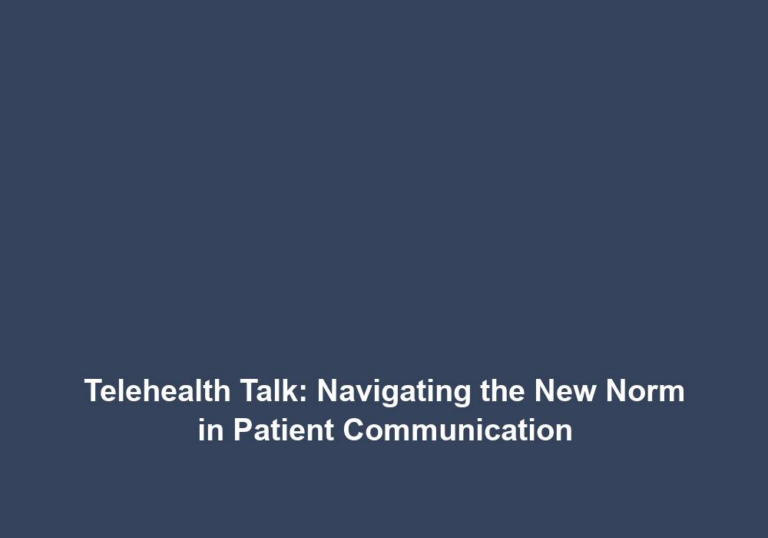Guiding Patients in the Digital Age: Training for Online Consultations
In the modern era, technology has revolutionized the way healthcare services are delivered. With the rise of online consultations, it has become essential for healthcare professionals to adapt and provide guidance to patients in navigating the digital landscape. This article delves into the importance of training patients for online consultations, discussing various aspects and providing valuable insights.
The Growing Popularity of Online Consultations
Online consultations have gained immense popularity in recent years, primarily due to convenience and accessibility. Patients can now connect with healthcare professionals from the comfort of their homes, eliminating the need for physical visits to clinics or hospitals. The flexibility offered by online consultations has proven to be beneficial for both patients and healthcare providers.
Benefits of Online Consultations
- Convenience: Online consultations provide patients with the ability to schedule appointments at their convenience, avoiding long wait times and travel hassles. It allows them to have access to healthcare services without the need to take time off work or rearrange their schedules.
- Accessibility: Online consultations bridge the gap between healthcare providers and patients in remote areas, ensuring access to quality healthcare. Patients who live in remote or underserved areas can now easily connect with specialists and receive necessary healthcare guidance.
- Cost-effective: Online consultations often prove to be more cost-effective for patients, as they eliminate transportation and other associated expenses. Patients can save on travel costs, parking fees, and childcare expenses. Additionally, online consultations can reduce the need for frequent follow-up visits, further reducing healthcare costs.
- Time-saving: Online consultations save valuable time for both patients and healthcare professionals, reducing unnecessary waiting times. Patients no longer have to spend time in waiting rooms, and healthcare professionals can efficiently manage their schedules, optimizing their time for consultations and providing timely care.
Training Patients for Online Consultations
While online consultations offer numerous advantages, it is crucial to ensure that patients are well-prepared to make the most of this digital platform. Here are some key aspects that healthcare professionals should focus on when training patients for online consultations:
1. Technology Literacy
Not all patients may be well-versed in using digital platforms for healthcare purposes. Therefore, it is essential to provide basic training on using online consultation tools, such as video conferencing applications or telemedicine platforms. The training should cover aspects like:
- How to download and install required software or applications: Patients should be guided through the process of downloading and installing the necessary software or applications for online consultations.
- Familiarization with the user interface and navigation: Patients should be introduced to the user interface of the online consultation platform and guided on how to navigate through different features.
- Troubleshooting common technical issues: Patients should be equipped with troubleshooting skills to address common technical issues that may arise during online consultations, such as audio or video connectivity problems.
By equipping patients with the necessary technological skills, healthcare professionals can ensure a smooth and hassle-free online consultation experience.
2. Patient Privacy and Security
Maintaining patient privacy and data security is of utmost importance in online consultations. Healthcare professionals should educate patients about the measures taken to protect their confidential information during online consultations. This training should include:
- Explanation of secure communication channels used for online consultations: Patients should be informed about the secure communication channels utilized for online consultations, ensuring that their personal and medical information remains protected.
- Guidance on creating strong passwords and practicing good online security habits: Patients should be advised on the importance of creating strong passwords and adopting good online security practices to safeguard their personal health information.
- Highlighting the importance of using secure internet connections and avoiding public Wi-Fi for consultations: Patients should be aware of the risks associated with using public Wi-Fi networks and encouraged to use secure internet connections for online consultations to prevent unauthorized access to their data.
By instilling a sense of trust and confidence in patients, healthcare professionals can encourage their active participation in online consultations.
3. Effective Communication Skills
While online consultations may lack the face-to-face interaction of traditional consultations, healthcare professionals can still foster effective communication with patients. Training patients in effective communication skills will enhance the overall experience and facilitate better healthcare outcomes. The training should emphasize:
- Active listening techniques for patients: Patients should be encouraged to actively listen and engage in the conversation during online consultations to ensure that their concerns are properly addressed.
- Encouraging patients to ask questions and express concerns: Patients should be empowered to ask questions and express their concerns freely, promoting a collaborative approach to healthcare.
- Providing clear instructions for remote examinations or tests: Healthcare professionals should provide clear instructions to patients regarding any remote examinations or tests that may be required during online consultations.
- Setting realistic expectations regarding response times and follow-ups: Patients should be informed about the expected response times for queries and the process for follow-up consultations, ensuring they have a clear understanding of the healthcare provider’s availability and the next steps in their treatment plan.
By promoting open and effective communication, healthcare professionals can ensure that patients receive the necessary care and guidance during online consultations.
4. Digital Health Literacy
Digital health literacy encompasses the ability to find, evaluate, and apply reliable health information obtained online. It is crucial to train patients to navigate the vast amount of health-related information available on the internet. This training should include:
- Teaching patients to differentiate between credible and unreliable sources of health information: Patients should be educated on how to identify trustworthy sources of health information online, ensuring that they make informed decisions based on reliable resources.
- Guiding patients on how to evaluate the quality and relevance of online health resources: Patients should be equipped with the skills to critically evaluate the quality and relevance of online health resources, enabling them to make informed choices about their healthcare.
- Encouraging patients to consult reliable healthcare websites or portals for additional information: Patients should be directed to reputable healthcare websites or portals where they can find accurate and up-to-date information to supplement their online consultations.
By enhancing digital health literacy, patients can make informed decisions and actively participate in their own healthcare management.
Conclusion
As online consultations continue to shape the future of healthcare, it is imperative for healthcare professionals to guide and train patients in navigating this digital landscape. By focusing on technology literacy, patient privacy and security, effective communication skills, and digital health literacy, healthcare professionals can ensure that patients make the most of online consultations. The proper training and support will empower patients to actively participate in their healthcare journey, ultimately leading to improved health outcomes and satisfaction.

